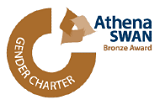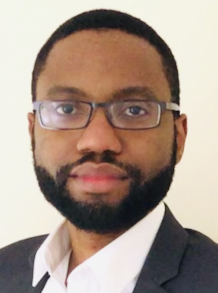
Real-Time and Distributed Systems
Dr John Oyekan
Senior Lecturer
Interests
Safe Human-Robot collaboration
Swarm robotics applications in manufacturing
Human-centered Robotics and AI
Nature inspired Optimisation and machine learning applications
Digital twins.
I am interested in receiving PhD students into our group. Send me an email with your CV and research statement. We also have funded PhD positions available to home/EU students.
Teaching:
+ Autonomous Robots
+ Field Programmable Gate Arrays
Career
John Oyekan is a Chartered Engineer (CEng) and Senior Lecturer in Human-Centred AI for Autonomous Manufacturing in the Department of Computer Science. He was previously a Lecturer in Digital Manufacturing at the University of Sheffield. He received a Ph.D degree in Computer Science and Electronic Engineering from the University of Essex as well as a MSc Robotics and Embedded Systems from same. Prior to the University of Sheffield, he was an Engineer at the Manufacturing Technology Centre in Coventry were he developed software architectures and algorithms for Autonomous Systems and a Research Fellow at Cranfield University carrying out research in Manufacturing Informatics.
He has worked in a startup, government funded catapult, automotive industry and his work is characterised by both fundamental and applied research in collaboration with partners in the automotive, aerospace and manufacturing sectors. He is passionate about translating blue sky research and thinking into practical solutions for industry challenges. As an academic, he has over 40 publications in the areas of swarm robotics, manufacturing informatics, bio-inspired algorithms and sensing.
Research interests
ROBOTS & ARTIFICIAL INTELLIGENCE ALGORITHMS FOR MANUFACTURING SYSTEMS:
This theme investigates various AI algorithms to improve the efficiency of manufacturing systems. One such example we are looking at is the development of algorithms to enable human and robots to work together in close proximity with each other. This means that in the future safety cages that are currently used to protect humans from industrial robots could be removed enabling humans and robots to share the same workspace like work buddies. They will be able to understand each other as when humans are working alongside each other on various tasks. Another example is the use AI to augment humans during repetitive tasks. We have conducted some work that enables a system to non-intrusively check the manual work a human is performing and feedback to the human if a mistake is made. This eliminates the need of a testing station in manual assembly lines thereby saving costs.
DIGITAL TWINS FOR ZERO PROTOTYPING OF FACTORY LAYOUTS:
The increasing complexity of manufacturing due to varying and bespoke customer demands calls for a factory that is able to be quickly reconfigured and build. But how do we ensure that the factory layout is right the first time and hence provide savings in cost? We investigate the use of virtual reality tools and simulation to develop virtual models of factories, simulate them and understand material as well as human flows before actual construction. The virtual models enable various hypotheses to be safely and cheaply tested.
NATURE-INSPIRED ALGORITHMS FOR ROBOTS IN UNKNOWN ENVIRONMENTS:
Animals are able to minimise the cost associated with food search in relation to food intake. They are able to efficiently search and locate sparsely distributed food in large environments outside their perception range and still have enough energy to survive and reproduce. They are masters of energy optimisation. Their environment span from a couple of square miles up to hundreds of square miles. By studying the process by which they solve this task, we are able to write algorithms for unmanned aerial robots capable of navigation and exploration in the natural environment. Possible uses of our robots include autonomous visual structural inspection tasks as well as autonomous search and rescue.
See my personal website for more information: https://oyekanjohn.github.io/

Contact details
Phone: +44 (0)1904 325500
Office: CSE/136E-mail: Send e-mail using web form
Research Group:
